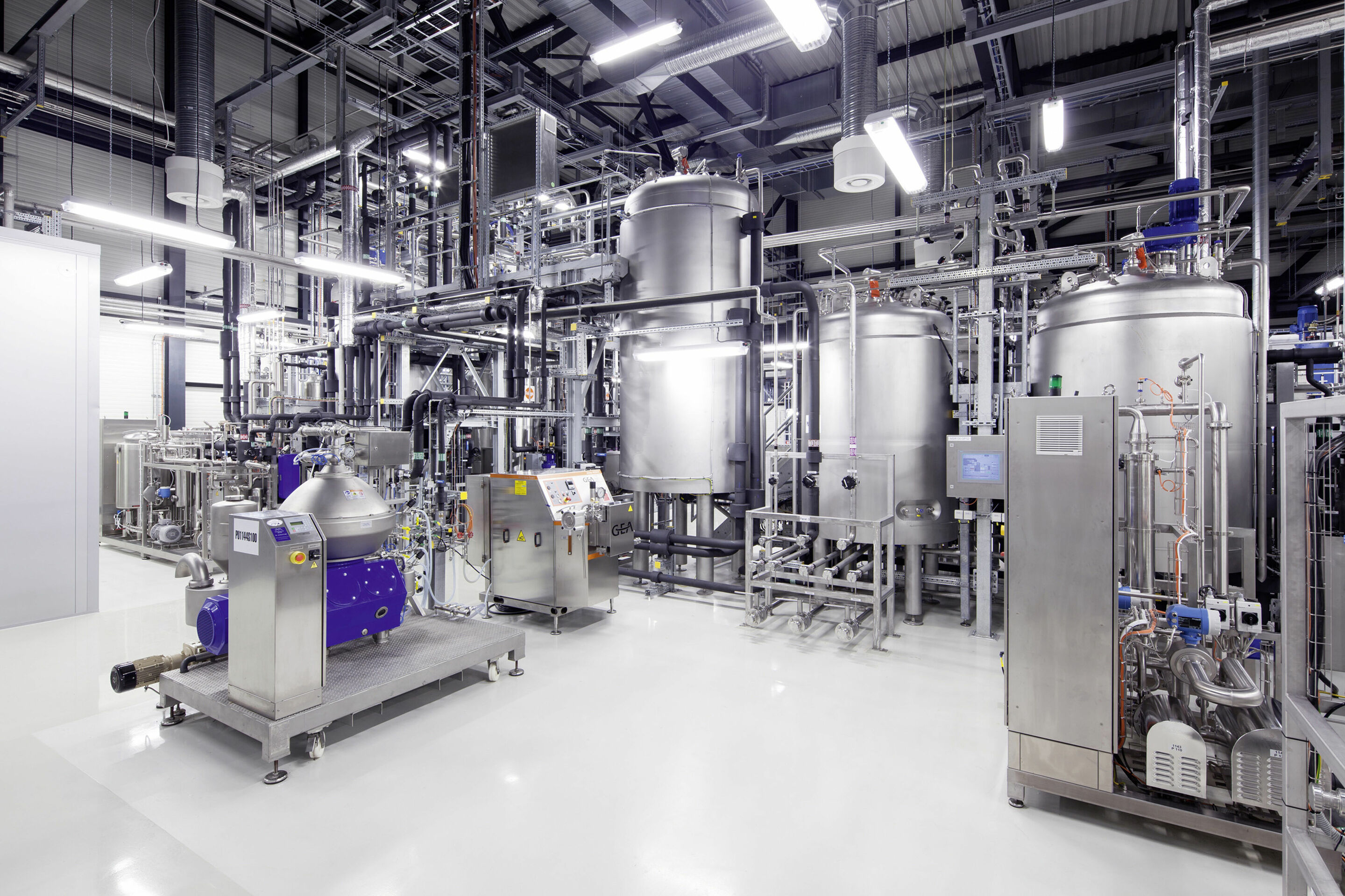Audi advances e-fuels technology:
new “e-benzin” fuel being tested
- Audi working with partners to develop alternative gasoline
- Analysis of high-purity fuel in test engine
- Audi e-gas already on the market; new e-diesel pilot plant being planned
Audi is convinced of the potential of the fuels e-gas, “e-benzin” (e-gasoline) and e-diesel and is continuing to pursue its e-fuels strategy. In the case of synthetic Audi “e-benzin” (e-gasoline), the Ingolstadt company has now achieved an important intermediate goal. Together with their development partners, they have for the first time produced a sufficient quantity of regeneratively produced fuel for initial engine tests.
Together with Global Bioenergies S.A. in Leuna (Saxony-Anhalt), the largest batch of e-gasoline ever produced – 60 liters (15.9 US gal) – has been achieved. “Like all Audi e-fuels, the new fuel has many advantages. It isn't dependent on crude oil, it is compatible with the existing infrastructure and it offers the prospect of a closed carbon cycle,” said Reiner Mangold, Head of Sustainable Product Development at AUDI AG. Audi “e-benzin” (e-gasoline) is essentially a liquid isooctane. It is currently produced from biomass in a two-step process. In the first step, Global Bioenergies produces gaseous isobutene (C4H8) in a demonstration plant. In the second step, the Fraunhofer Center for Chemical Biotechnological Processes (CBP) in Leuna uses additional hydrogen to transform it into isooctane (C8H18). The fuel is free of sulfur and benzene and is therefore especially low in pollutants when it burns.
Audi engineers are now examining the combustion and emission behavior of the renewable fuel in a test engine. As a high-purity synthetic fuel with very good anti-knock properties, Audi “e-benzin” (e-gasoline) offers the possibility to further increase engine compression and thus boost efficiency. Over the medium term, the project partners aim to modify the production process so that it will not require biomass – in this case, CO2 and hydrogen produced from renewable sources should be sufficient source materials.
Audi’s alternative fuels already offer great potential for sustainable mobility and are helping reduce CO2 emissions from combustion engines – by up to 80 percent** in g-tron models, for example.
For Audi, e-fuels are more than just a subject of research in laboratories. Since 2013, the brand with the four rings has been offering renewable Audi e-gas on the market. It originates in part from the company’s own power-to-gas plant in Werlte (Emsland). Customers fill up their Audi g-tron model at any CNG filling station and pay the regular price for it. By feeding the computed volume of Audi e-gas into the natural gas grid, Audi ensures the green benefits of the program, including the corresponding reduction in CO2 emissions.
Audi e-diesel is also part of the Audi e-fuels portfolio. In Dresden, Audi’s cooperation partner Sunfire operated a pilot plant for this purpose from late 2014 to October 2016. As in Werlte, green electricity supplied the energy, and water and CO2 were also used as raw materials. The end product was called Blue Crude, which was refined into Audi e‑diesel. Audi is currently planning production capacity in Laufenburg in the Swiss canton of Aargau. Together with partners Ineratec GmbH and Energiedienst Holding AG, a new pilot plant will produce around 400,000 liters of Audi e-diesel per year. For the first time ever, hydroelectric power is the sole energy supply required for this.
Fuel consumption of the models named above:
A3 Sportback g-tron: CNG consumption in kg/100 km: 3.5 – 3.3*; combined fuel consumption in l/100 km: 5.4 – 5.1* (43.6 – 46.1 US mpg); combined CO2 emissions in g/km (CNG): 96 – 89* (154.5 – 143.2 g/mi); combined CO2 emissions in g/km (gasoline): 126 – 117* (202.8 – 188.3 g/mi)
A4 Avant g-tron: CNG consumption in kg/100 km: 4.3 – 3.8*; combined fuel consumption in l/100km: 6.5 – 5.5* (36.2 – 42.8 US mpg); combined CO2emissions in g/km (CNG): 117 – 102* (188.3 – 164.2 g/mi); combined CO2 emissions in g/km (gasoline): 147 – 126* (236.6 – 202.8 g/mi)
A5 Sportback g-tron: CNG consumption in kg/100 km: 4.2 – 3.8*; combined fuel consumption in l/100 km: 6.3 – 5.6* (37.3 – 42.0 US mpg); combined CO2 emissions in g/km (CNG): 114 – 102* (183.5 – 164.2 g/mi); combined CO2 emissions in g/km (gasoline): 143 – 126* (230.1 – 202.8 g/mi)
* Fuel consumption and CO2 emission figures given in ranges depending on the tires/wheels used
